This article was co-authored by Luba Lee, FNP-BC, MS. Luba Lee, FNP-BC is a Board-Certified Family Nurse Practitioner (FNP) and educator in Tennessee with over a decade of clinical experience. Luba has certifications in Pediatric Advanced Life Support (PALS), Emergency Medicine, Advanced Cardiac Life Support (ACLS), Team Building, and Critical Care Nursing. She received her Master of Science in Nursing (MSN) from the University of Tennessee in 2006.
wikiHow marks an article as reader-approved once it receives enough positive feedback. This article has 20 testimonials from our readers, earning it our reader-approved status.
This article has been viewed 2,951,764 times.
Jock itch, also known as tinea cruris, is a common fungal infection that creates areas of red, itchy rashes around your upper thighs. While it most commonly affects young men, it can easily spread or happen on anyone.[1] Though uncomfortable, jock itch is rarely a serious problem and can be cured using simple home remedies.
Things You Should Know
- Treat mild cases of jock itch with antifungal creams like Lamisil AT, Lotrimin AF, Lotrimin Ultra, or Naftin.
- Try not to scratch your jock itch, as this could lead to broken skin and infection. Soothe your skin with bond medicated powder, instead.
- Talk to your doctor about prescription creams, antibiotics, and oral antifungal medications if your jock itch doesn't improve.
- Prevent jock itch by showering daily, wearing comfortable underwear, and washing your gym clothes regularly.
Steps
Using Common Treatment Options
-
1Use an antifungal cream for a mild infection. Creams contain either clotrimazole, allylamines, or benzylamines to kill the fungus. Your best options include Lamisil AT, Lotrimin AF, Lotrimin Ultra, or Naftin. Over-the-counter options are usually just as effective as prescriptions. Apply cream that contains clotrimazole twice a day for about 10–14 days. If the cream is allylamine- or benzylamine-based, then apply it twice a day for 1–2 weeks.[2]
- Try asking your doctor for a prescription antifungal cream if over-the-counter medications don’t work. You may be given oral medication for resistant infections or if you’re immunocompromised. This may make the cost of the medication a little less expensive too.
-
2Keep your skin clean and dry. Make sure to dry yourself thoroughly after a shower because fungus thrives in warm, moist environments. When you can, either go without underwear or go naked to expose the affected area to air. When that's not feasible, at least wear boxers instead of briefs.Advertisement
-
3Avoid wearing any clothing that rubs or irritates your crotch. Avoid tight underwear and tight pants made from any kind of synthetic fabrics. Change your underwear every day and choose cotton styles to help prevent infections later on.
-
4Refrain from scratching. Scratching will irritate the rash and could break your skin, creating the potential for infection.
- Trim your nails if you can't stop scratching. Wear gloves when you're trying to go to sleep at night.
- Take a cool bath for relief. Sprinkle the water with uncooked oatmeal, baking soda or a substance called colloidal oatmeal (Aveeno is a good brand) that is made specifically for the bath. Just dry your crotch thoroughly when you get out of the tub.[3]
-
5Use Bond medicated powder. This powder has a soothing effect and it can help to provide some relief as well. It also contains a baking powder component, which will help to dry up the moisture. You can purchase Bond powder over the counter and it is inexpensive.
-
6Talk to your doctor. It is important to talk to your doctor if the scaly redness doesn't go away within a couple of weeks, if it starts getting worse, or if you notice that it's turned yellow and oozes. Your doctor can offer you a couple of options:
- Prescription creams: Doctors can prescribe prescription-strength antifungals including econazole and oxiconazole.
- Antibiotics: If your jock itch has become infected, doctors can prescribe an antibiotic to help clear up the infection.
- Oral antifungal medications: Sporanox, Diflucan or Lamisil are all medications that your doctor may prescribe for you. These prescriptions may be given for one month to one year. You may experience gastrointestinal problems or abnormal liver function. If you're taking antacids or warfarin, you probably shouldn't take these medications. Another option, Grifulvin V, takes longer to work but seems good for people who are allergic to other antifungals or who have conditions that make taking other medications a bad idea.[4]
Preventing Future Episodes of Jock Itch
-
1Shower daily. Don't wait long to shower after you've been perspiring heavily or exercising. Use mild soap and water, and avoid anti-bacterial and deodorant soaps.
-
2Keep your groin clean and dry at all times. If you find you're susceptible to jock itch, then cover your groin or athletic cup with anti-fungal or drying powders after you take a bath or shower.
-
3Avoid clothing or underwear that irritates the area. Choose loose-fitting clothes with smooth fabrics. Wear cotton boxers instead of briefs.
-
4Wash your underwear and athletic supporter frequently. Also, never share your towels or any of your clothing with other people, especially during the active stage of the infection. Jock itch can spread by contact with unwashed clothing or athletic cups.
- Change out of athletic clothes as soon as you can so there’s less risk of fungal growth.
- Do not dry your body with the same towel that you use to dry the affected area because this can also cause the infection to spread.
-
5Put on your socks before you put on your underwear. If you have athlete's foot, then make sure to cover your feet up with your socks before your feet come into contact with any of your other clothing. Doing this keeps the fungus from spreading to your groin from your feet.
-
6Take off wet swimsuits quickly. Make sure to wash the swimsuit. Do not simply hang it out to dry. Change into something dry right away as well.
-
7Avoid carrying wet or sweaty clothing in your gym bag. Also, don't keep damp clothing in your locker. Instead, wash your gym clothes after each use.
Expert Q&A
Did you know you can get expert answers for this article?
Unlock expert answers by supporting wikiHow
-
QuestionCan aloe vera cure jock itch?
 Jurdy Dugdale, RNJurdy Dugdale is a Registered Nurse in Florida. She received her Nursing License from the Florida Board of Nursing in 1989.
Jurdy Dugdale, RNJurdy Dugdale is a Registered Nurse in Florida. She received her Nursing License from the Florida Board of Nursing in 1989.
Medical Review Board
-
QuestionCan jock itch be spread through oral or vaginal sex?
 Jurdy Dugdale, RNJurdy Dugdale is a Registered Nurse in Florida. She received her Nursing License from the Florida Board of Nursing in 1989.
Jurdy Dugdale, RNJurdy Dugdale is a Registered Nurse in Florida. She received her Nursing License from the Florida Board of Nursing in 1989.
Medical Review Board
-
QuestionWhat cream is best to treat itching and a fungal infection?
 Jurdy Dugdale, RNJurdy Dugdale is a Registered Nurse in Florida. She received her Nursing License from the Florida Board of Nursing in 1989.
Jurdy Dugdale, RNJurdy Dugdale is a Registered Nurse in Florida. She received her Nursing License from the Florida Board of Nursing in 1989.
Medical Review Board
Warnings
- See a doctor as soon as possible if you develop any of the following symptoms other than the rash: fever, weakness, vomiting, rapid spread of the rash (especially to the trunk), swollen glands, lumps in the groin area, drainage of pus, open sores or ulcers, boils, rash that involves your penis or vaginal area, or difficulty urinating.⧼thumbs_response⧽
- If you have an impaired immune system (e.g., from having diabetes, HIV/AIDS, or atopic dermatitis – a chronic, genetic skin condition characterized by itchy, inflamed skin and associated with asthma and seasonal allergies), you may be more likely to get jock itch. This happens because the skin barriers that normally protect you from viral, bacterial, and fungal infections become compromised. Use extra care to prevent and treat jock itch, and watch out for any potential complications when you get jock itch. You should also see your doctor and ask about a daily anti-fungal oral medication as a preventative measure if you are at risk.⧼thumbs_response⧽
- While jock itch is typically very responsive to treatment, occasionally complications may result, such as permanent change to the skin color, secondary bacterial infection requiring use of antibiotics or potential side effects from the medications.[5]⧼thumbs_response⧽
Things You'll Need
- Anti-fungal cream
- Prescription creams, antibiotics or oral anti-fungal medications (don't over do the antibiotics as they don't always work, try taking natural supplements like, spirulina 550mg and sea kelp 150mg)
- Mild soap, such as a baby soap or oatmeal soap, and water
- Anti-fungal or drying powder, such as Bond.
- Baking soda, uncooked oatmeal, or colloidal oatmeal (if you do not have access to anti-fungal medications).
- Loose-fitting clothing and boxers
References
- ↑ https://www.aafp.org/afp/2014/1115/p702.html
- ↑ https://www.aafp.org/afp/2014/1115/p702.html
- ↑ http://www.mayoclinic.com/print/itchy-skin/ds00847/method=print&dsection=all
- ↑ http://www.mayoclinic.org/diseases-conditions/jock-itch/diagnosis-treatment/treatment/txc-20229553
- ↑ http://www.nlm.nih.gov/medlineplus/ency/article/000876.htm#Symptoms
About This Article
In most cases, jock itch will clear up on its own after 2 to 3 weeks. If you want to speed up the process, you can use an over-the-counter antifungal ointment designed to treat the condition. Apply the ointment as directed on the package for 1 to 2 weeks to see if your rash clears up. Since jock itch is made worse by sweating and friction, wear loose-fitting clothing and avoid exercise while you’re treating the rash. To keep the area dry, cover the rash with talcum powder 2-3 times a day. If your jock itch doesn't go away after a few weeks, contact your doctor. If you have athlete’s foot at the same time as your jock itch, you'll want to treat both rashes. Jock itch and athlete's foot can be caused by the same bacteria, and if you don't treat the athlete's foot at the same time, the jock itch might come back. You can use an over-the-counter ointment designed for athlete's foot to help clear up the rash. For tips from our Medical reviewer on how to prevent future jock itch outbreaks, read on!


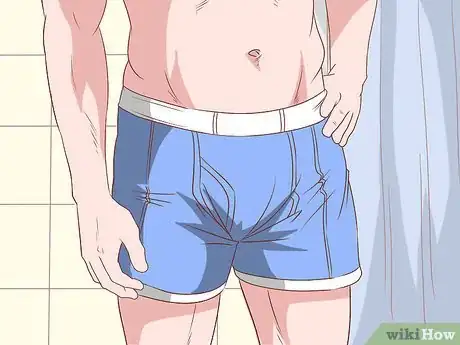
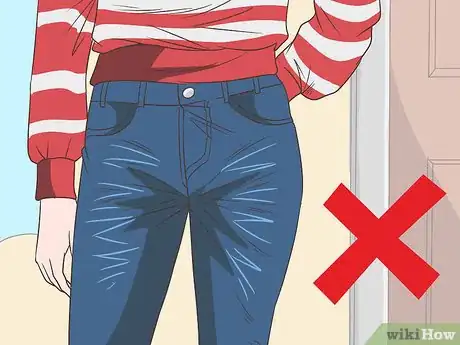
-Step-10-Version-3.webp)
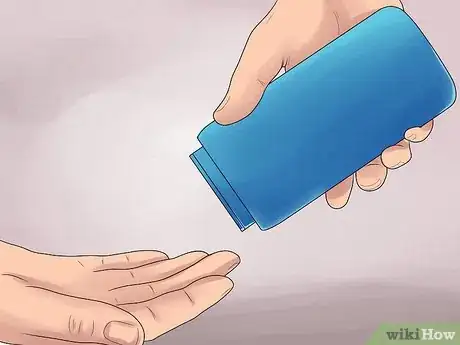
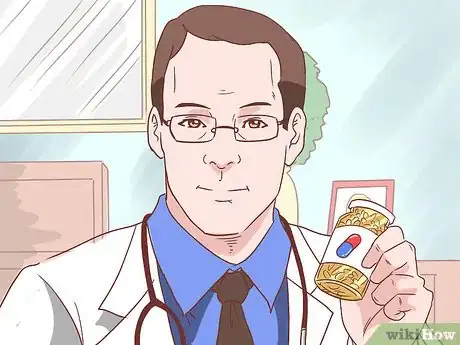
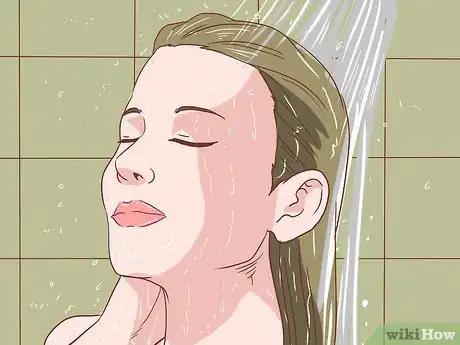
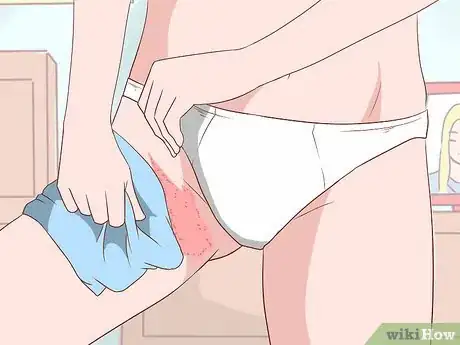



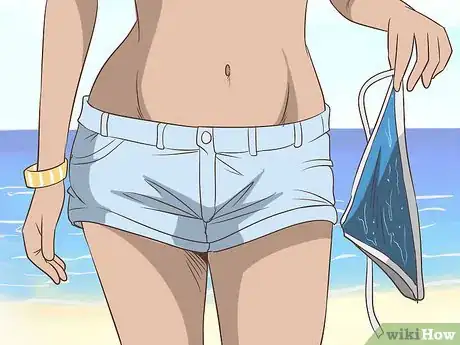
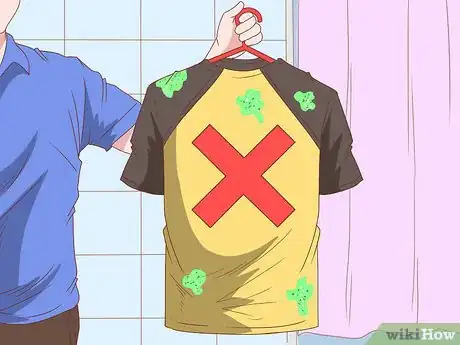

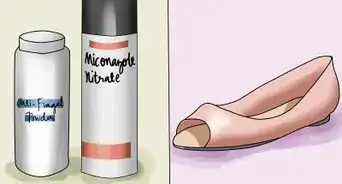





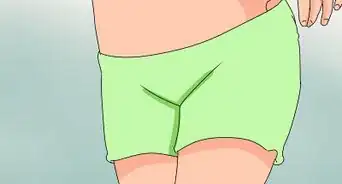


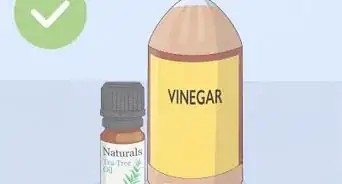


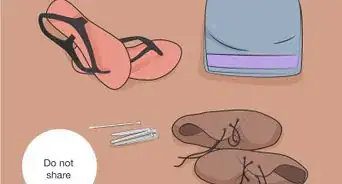



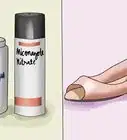

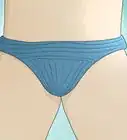






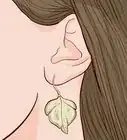
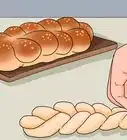




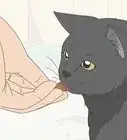






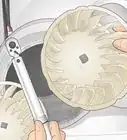



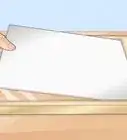












Medical Disclaimer
The content of this article is not intended to be a substitute for professional medical advice, examination, diagnosis, or treatment. You should always contact your doctor or other qualified healthcare professional before starting, changing, or stopping any kind of health treatment.
Read More...